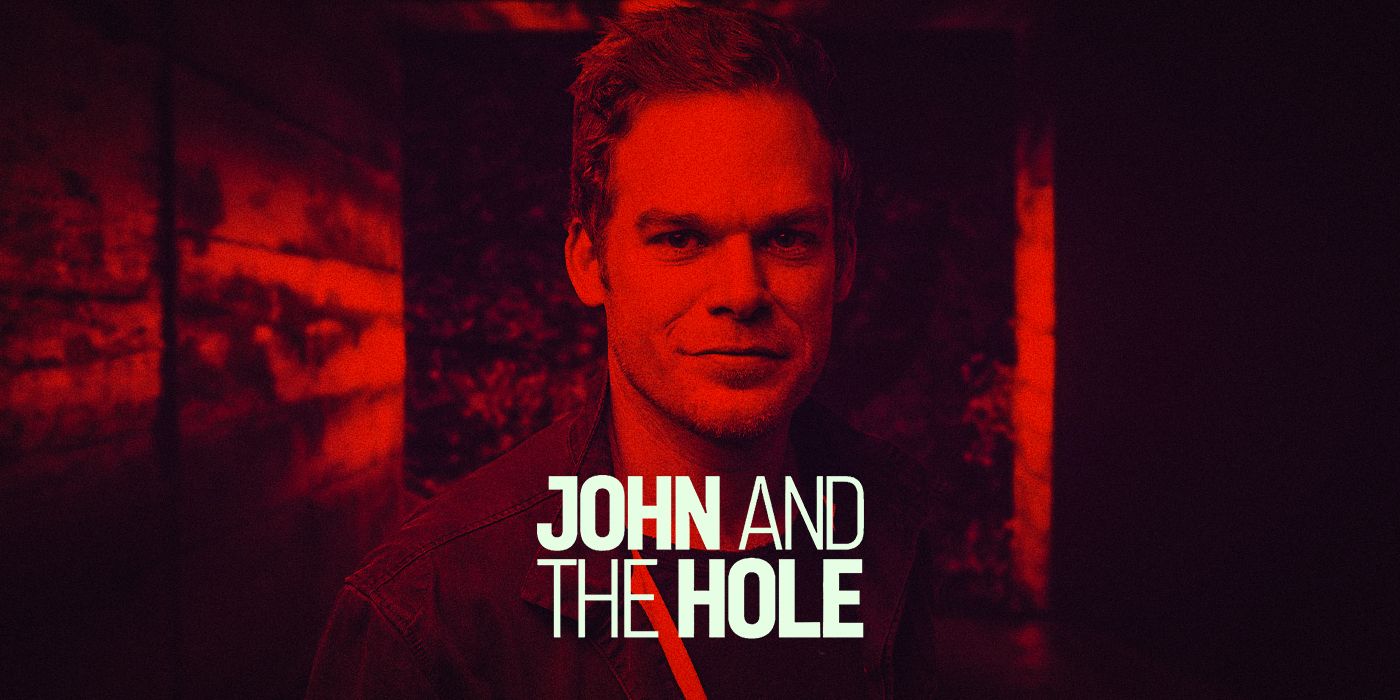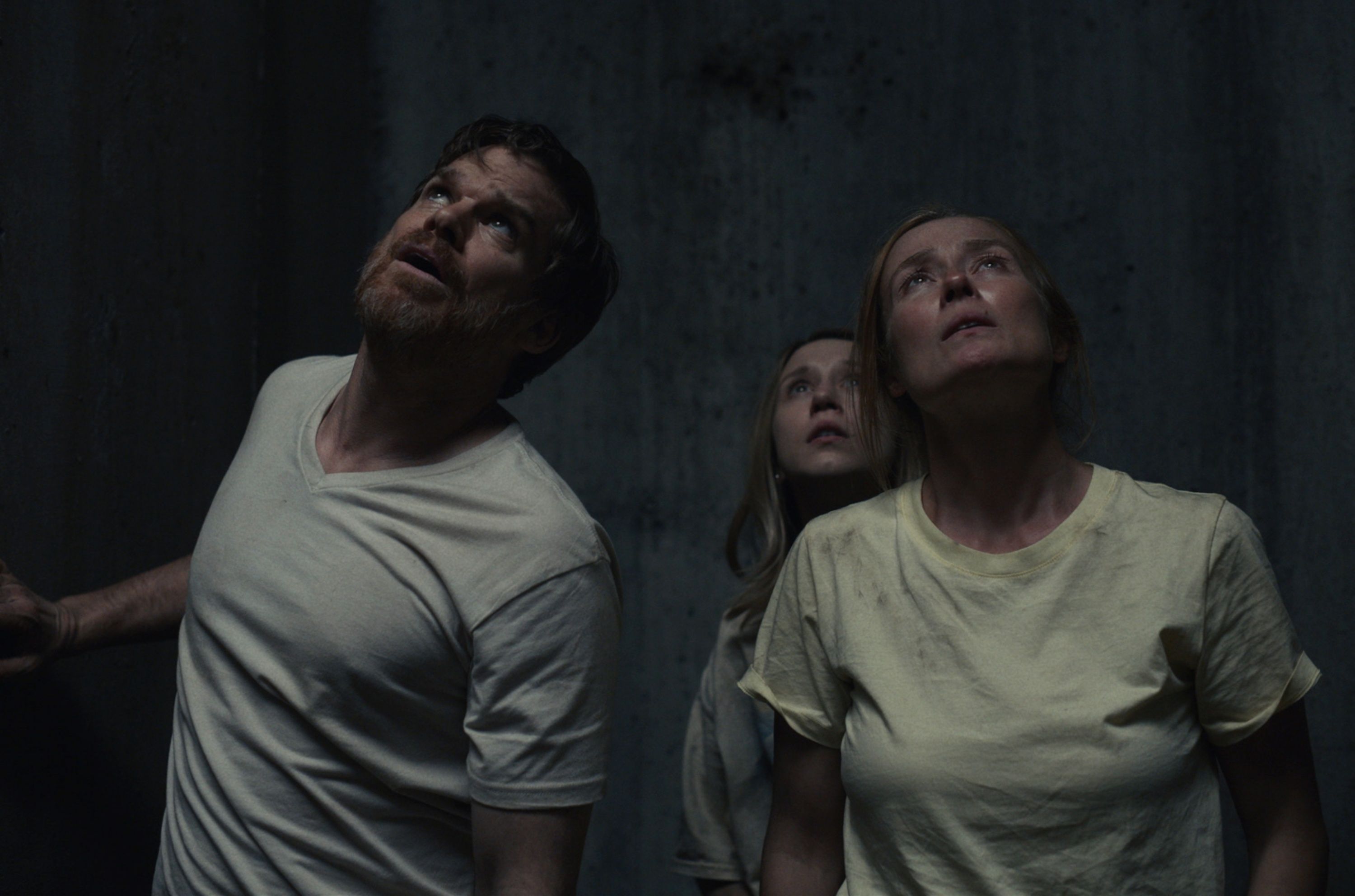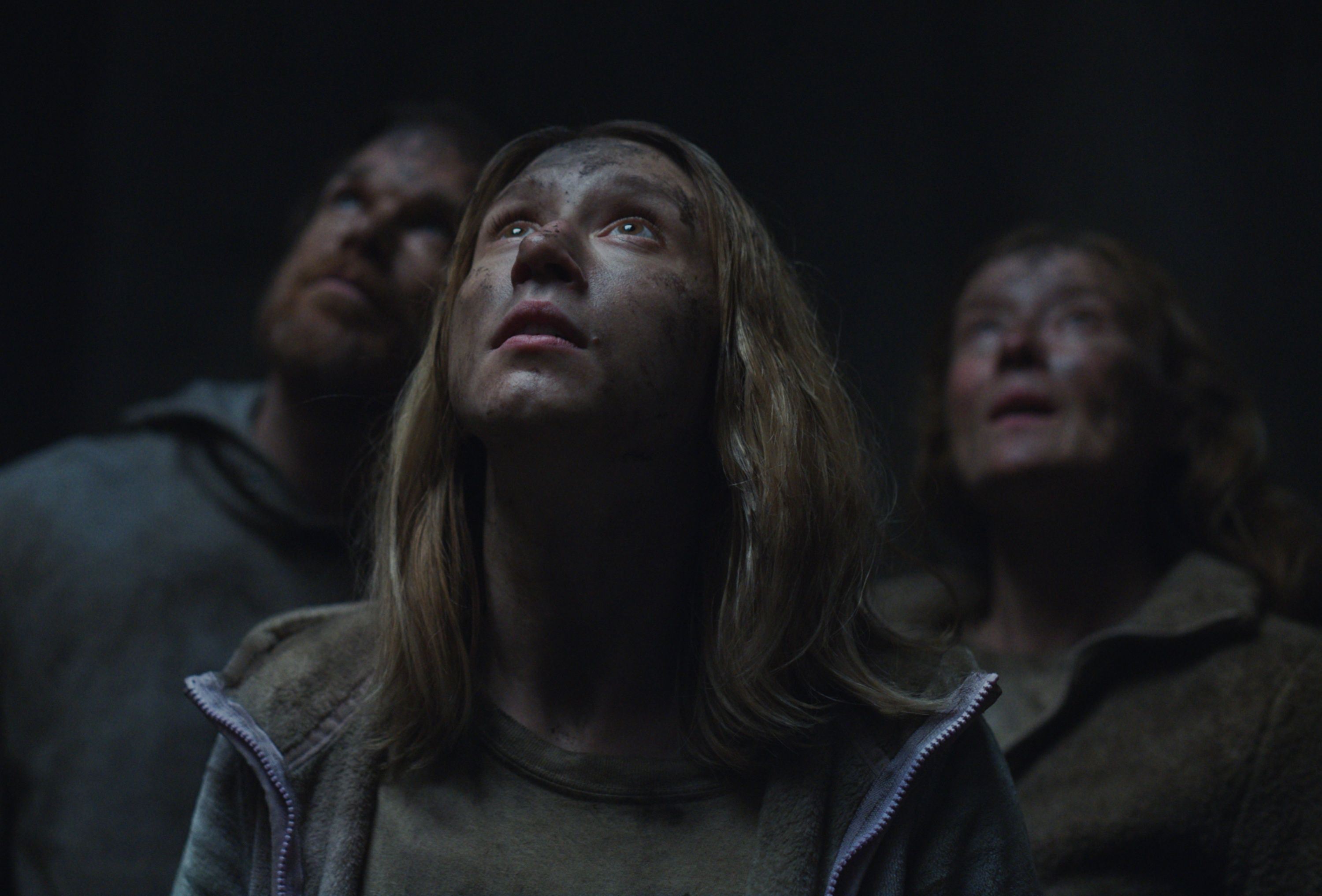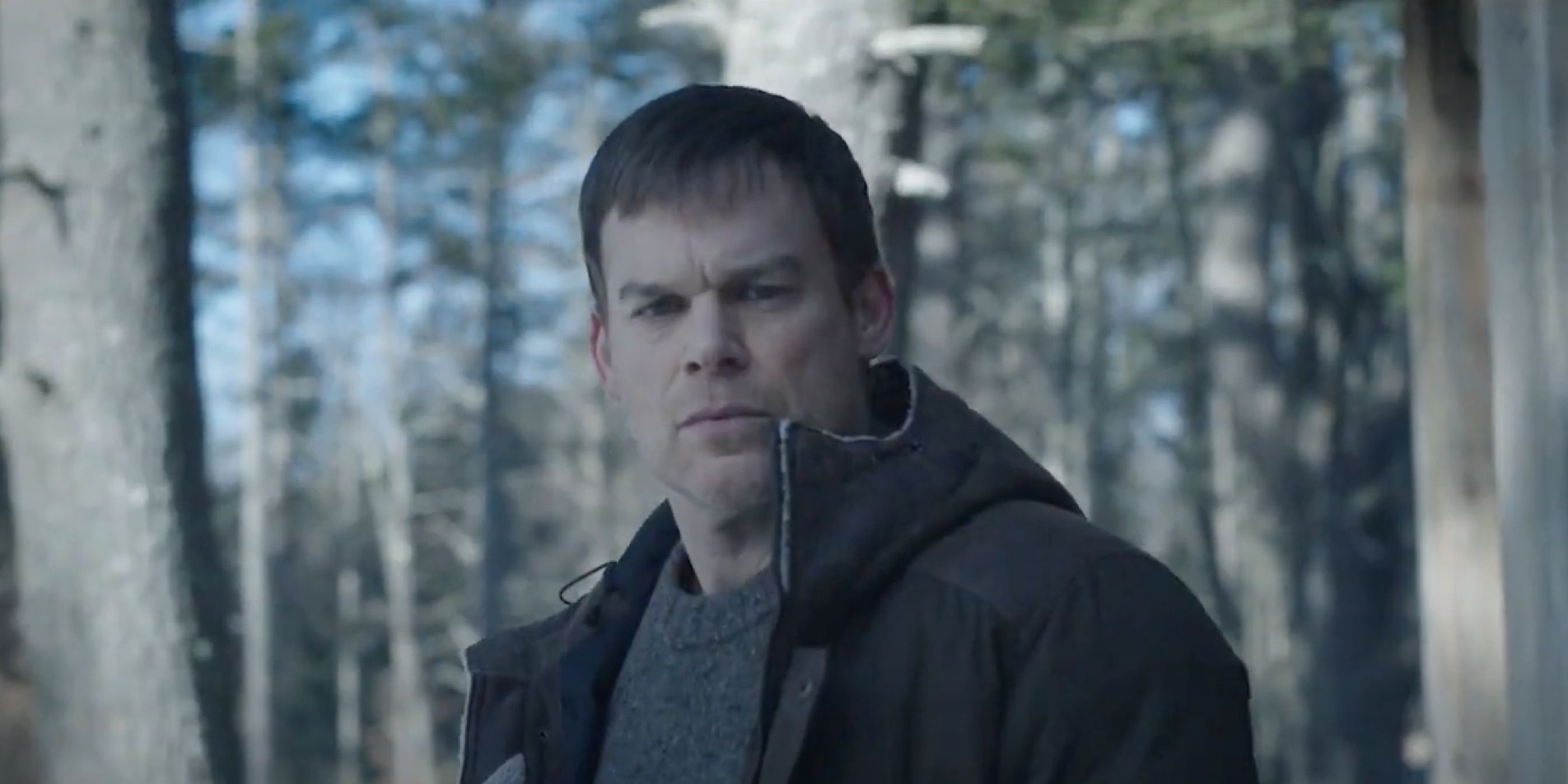From director Pascual Sisto and writer Nicolás Giacobone, the dramatic thriller John and the Hole tells the story of a 13-year-old who decides to hold his family captive in a bunker he discovers in the woods. While his affluent parents (Michael C. Hall and Jennifer Ehle) and older sister (Taissa Farmiga) come to terms with the fact that they’re not getting out of the deep hole on their own, John (Charlie Shotwell) uses his time alone to do whatever he wants with his newfound freedom from responsibility.
Collider recently got the opportunity to chat 1-on-1 with Hall about his reaction to reading the script for John and the Hole, why he felt for John, the comradery built between co-stars when you spend so much time together in a dirty hole, the most challenging aspect of the shoot, and what might have become of this family. He also talked about the experience of returning to Dexter, focusing on live shows with his band Princess Goes to the Butterfly Museum, and whether he’d direct again.
Collider: This is definitely quite an interesting and unique take on a coming of age story. When you first read this script, what was your reaction to it? Were there things that most stood out for you or that you most connected with?
MICHAEL C. HALL: I liked it very much. I thought it was very well written. The dialogue all rang true. I liked that on the page and certainly its ultimate execution was something that set up certain expectations that it never quite felt obliged to deliver on. There’s a sense that something really horrible is going to happen. I don’t wanna give too much away, but it doesn’t go down the roads that a film that sets itself up the way this one sets itself up normally would and doesn’t definitively answer the questions it poses. It leaves them to hang in the air unresolved, which I think is quite true to life.
There were so many times that I just didn’t know where it was going to go next or what to expect from it. Did you have any warning, as to what you would be reading, when you opened the script?
HALL: No. I don’t think I had any tiny little synopsis of what I was gonna find. Maybe I knew a short description of the film. Maybe I knew it was about a boy who puts his family in a hole, but that was about as far as it went.
Were there a lot of conversations about how this experience that you had reading would translate to actually filming it, and then getting it on the screen?
HALL: Like so many films, I met with (director) Pascual Sisto about this film, well over a year before it finally went into production. It was one of those things where I thought, “Well, I guess they lost their money.” So, I was pleasantly surprised to see it come back, but relatively quickly after that pleasant surprise, we were on set filming. We had some conversations, but I think a lot of it was just intuitive in the space. For a movie like this, I think it’s appropriate, if all the actors feel like they’re trapped in their own world and their own definition of what the world is. To some degree, that’s a description of the world that they’re all inhabiting. It’s one where they’re all isolated, and not necessarily at odds with each other, but not quite coherent as a family.
When it came to the character of John, were there things that most horrified you or unnerved you about him and his actions? Did you need to justify his behavior at all, or was it more interesting that there isn’t really a clear cut reason for any of it?
HALL: I wasn’t horrified by John. I felt for him. I felt that he’s a kid where this is some sort of labor-intensive version of banging your head against the wall. He wants to feel something, and I think something takes over, in terms of the plan he hatches. There’s some sort of shadowy instinct that’s propelling him to do this. I imagined it, playing his dad, while it’s never made explicit why John has decided to do what he’s done, I had the sense that his dad gets it. He doesn’t get it in a way where he can point to a particular instance that led John to do this, but that sense of waking up in the hole and coming into a realization that John has put in there, the sense of being completely shocked and yet not entirely surprised is a sixth sense. As much as anything, I felt for a kid who was in the requisite pain that would inspire one to do such a thing.
When you see a kid doing these things, you immediately wonder what the parents must have done to him, but clearly it’s so much more complicated than that.
HALL: Yeah. I don’t mean to suggest that he does this, and then everything is better for the family, but there is a coming together for the family that what he does necessitates and, in some ways, is arguably therapeutic. I’m not recommending that people do this, or that kids do this to their family, but I think John is a kid in a world whose family also lives in the same world, which is a world where they’re alienated and distracted from the experience of being alive. It’s a contemporary malaise, and he does something to break that cycle or unplug it. I don’t know, I kind of admire him.
What kind of comradery builds between you and your co-stars when you’re really in a dirty hole together for most of a movie?
HALL: Yeah, I’m not even sure how many of our shooting days we spent in that hole, but we would come to work – we shot it more or less in sequence – and every morning, we would get progressively dirtier and dirtier and dirtier. It got to the point where we only really felt comfortable when we got into the hole. That’s when life started to make sense again. It was really well done. They built it on a stage. We obviously had the exterior of the hole, but in order to facilitate the filming and cameras, they built the hole, itself. When you were in there, it felt completely real. The three of us, we laughed a lot. It’s interesting, trying to simulate something that’s so beyond your ability to wrap your head around. I don’t think they ever got to a point where they weren’t, as characters, wondering whether or not this was even really happening. It’s so strange. There was that collective sense that we three had.
Do you just get to a zen place when you know that you’re going to just be stuck in a hole for however many hours of the day, or does it ever get claustrophobic?
HALL: I’m not one who suffers from claustrophobia, really. In a way, that’s what’s fun about acting. What happens is what it says happens, so you just surrender to that and give over to it. It’s a very different proposition, if you’re simulating something, as opposed to actually going through it. I think anything that requires a degree of surrender is probably good for you.
Was there a scene that was most difficult or most challenging to do?
HALL: Just experiencing the humiliating sense of powerlessness, as this guy who was supposed to be the head of the household. Without any sense of agency or any hope of doing anything, he is completely dependent on the whim of his son. Living in that place and with that kind of humiliation, and experiencing it dead in the face of your wife and daughter, giving over to living in that place was probably the hardest.
Because so much of what Charlie Shotwell does in this is going on outside of the hole, what was it like to see what he delivered in this film, when he wasn’t sharing scenes with you guys?
HALL: It was exciting. I spent enough time working with him that I was really excited to see it. He’s just such a talented and intuitive and really intelligent kid. It was exciting. I was mesmerized by him.
Do you feel like your character and this family have learned from what they’ve been through and what they’ve been put through? Did you think at all about what happens to them, moving forward?
HALL: Yeah. When we see them at the end, I think there’s a sense that a lot, on the surface, is the same, but something has fundamentally changed. It depends on the lens through which you watch it. It could seem really sinister and dark. It could also be interpreted, in a more positive sense, that John’s father, the character I played, has had somebody pour a bunch of cold water over his head and now he’s awake to dynamics that he might have been on autopilot for, previously. Maybe the whole experience activated some ability to recognize the moment at hand, in a way that he hadn’t been. I do think that this episode and their experience, as a family, is one that they’ll all tell themselves individual stories about and never be entirely on the same page and never be entirely able, as individuals, to completely articulate what it was that happened. I wonder what the relationship will be like between John’s mother and the woman who John kept at bay. There will be a certain number of questions to answer, and I can certainly understand how they might want to avoid talking about it with most people, if not everyone.
There has been a lot of talk, over the years, about Dexter coming back, and you never know what to believe with this things, until it actually happens. Aside from the COVID of it all, how was it making the new season compared to what you had done? How did it feel to step back into that character?
HALL: It was very odd, at first. The notion that as much time had passed for the character, as had passed for me and for everyone, since we last shot, there was a sense of, “Oh, they just turn the cameras back on and he’s being living a life the entire time.” But the context of the show, the tone of the show, the look of the show, all of it is pretty starkly different, so that helped, just in terms of locating myself in a new place and not feeling like we were going back in time. He was still there and accessible. I had a sense of him that initially felt strange. Something you put away and then you’re resurrecting, it’s a pretty wild experience. The shoot was so demanding and intense that, after a couple of days, there really wasn’t much to do other than just focus on the work at hand, and that’s what we did.
Obviously it depends on viewers, but if the demand is there for it, would you want to do another season, or did you go into it as a one and done season and that’s it?
HALL: In the interest of not revealing anything by answering that question definitively, I won’t answer it.
He definitely seems like a character that wouldn’t necessarily be the easiest to reinhabit for a long period of time.
HALL: Yeah, he’s got a little bit more than the normal dose of dark.
Do you know what you’re going to do next?
HALL: Acting wise, I don’t know. I’ve been making music with a couple of guys in a band. We’re called Princess Goes to the Butterfly Museum. We released an EP, and then a full-length record this past year, and we’re working on another one. We’re gonna playing shows in New York and perhaps going on a mini tour. So, I’m gonna be doing that for the next few to several months. As far as any upcoming acting gigs, I haven’t committed to anything yet.
What was it that made you want to do the band thing? Is there a story behind the name of the band?
HALL: I’ve always done a lot of singing. Probably my first experiences performing were singing, as a little boy in a boys’ choir. I’ve done Cabaret and Chicago on Broadway, and I did Hedwig for awhile on Broadway. That was my first really legitimate taste of fronting a rock band. Peter Yanowitz, who’s our drummer, was actually in the band in that show. That led to doing the Bowie musical, Lazarus. All signs just were blowing in that direction. Without intending to start a band, I just started playing on some instrumental tracks that Peter Yanowitz and Matt Katz-Bohen, the other band member, were making and it started clicking. We started writing, in lots of different ways, and the next thing we knew, we decided we wanted to book a gig because we’d written a good number of songs. We had to come up with a name, and a lot of things were being tossed around, but Matt’s daughter mentioned to him, one day, that she was gonna have a band one day. I don’t know how old she was, at the time, maybe five. He asked her what the name would be and she said, “Princess Goes to the Butterfly Museum.” And he said, “Can I have that name?” And she said, “Yeah.” He brought it to us, and it just stuck. We couldn’t shake it. It somehow seems appropriate for what we’re up to.
Have you thought about directing again?
HALL: I’ve thought about it. Back when I was doing Dexter, the first time around, I directed some then. I would never say never to anything. If a story emerged and it felt resonant in a way that it was worth my telling in that capacity, as director, I’d love to do that someday. It’s not an active aspiration, but it’s a compelling notion.
John and the Hole is now playing in theaters.




